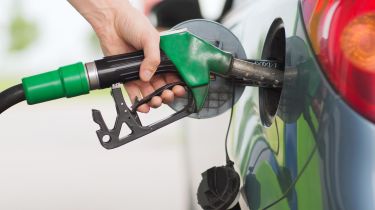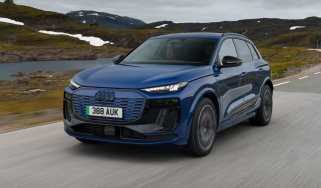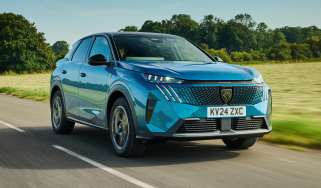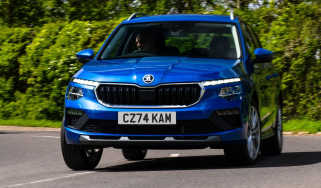2030 UK petrol and diesel sales ban delayed to 2035
Long-standing plans to ban petrol and diesel car sales in 2030 have been delayed by five years

- Prime Minister confirms five-year petrol and diesel ban delay
- Ford UK chair states decision would “undermine” plans
- Labour commits to 2030 if it wins the next election
Prime Minister Rishi Sunak has confirmed the ban on the sale of new petrol and diesel models from 2030 will be pushed back until 2035. The announcement came after leaks caused a day of speculation that a delay was likely.
Sunak has said his government remains committed to the UK’s targets around ‘net zero’, but that he believes targets that place additional costs on consumers are unnecessary. His move will align the 2035 deadline for a ban on the sale of cars with petrol and diesel engines with major car markets around Europe.
The reported ‘leaked’ information was reinforced by Home Secretary Suella Braverman, who speaking on the BBC’s Today programme, described the 2030 ban as “unrealistic”. Speaking to LBC, Labour’s shadow chief secretary to the Treasury, Darren Jones, committed to reversing any U-turn on the 2030 ban. "We supported the 2030 target when the Conservatives introduced it into Parliament," he said.
 The 10 best electric cars in 2025
The 10 best electric cars in 2025
Sunak has also said that despite delaying the ban to 2035, he’s confident that the majority of new car sales will be electric by 2030 anyway, stating that “the costs are reducing, the range is improving, the charging infrastructure is growing. People are already choosing electric vehicles to such an extent that we’re registering a new one every 60 seconds. But I also think that at least for now, it should be you, the consumer that makes that choice, not the government forcing you to do it.”
Introduced by former Prime Minister Boris Johnson in 2020 as part of a bold ‘green revolution’, the target to ban the sale of new purely internal combustion engined models was seen as a key step in helping the nation hit its ‘net zero’ by 2050 ambitions.
A Zero Emissions Vehicle (ZEV) government mandate is still set to come into force from next year, forcing a certain percentage of carmakers’ sales to comprise zero-emissions vehicles – currently the proposed target for 2024 is 22%.
According to the most recent Society of Motor Manufacturers and Traders (SMMT) sales figures, battery electric cars have accounted for 16.4% of sales so far in 2023 – an increase of 14% year-on-year. However, the market share of petrol cars stands at 41.6%, and has grown by 44.2% in the same period, partly as sales of diesel vehicles has dwindled to just 4%.
While Benefit-in-Kind taxation of just 2% has seen EVs become a popular choice for company car choosers, sales are sluggish amongst private buyers who only stand to benefit from a £10 annual reduction in VED (road tax) and reduced running costs. As the price of electricity has increased, the cost difference between charging with electrons and filling with petrol or diesel has narrowed significantly in recent months. The Plug-in Car Grant incentive was gradually reduced to a £1,500 saving for cars costing less than £32,000 and then phased out completely on 14 June 2022.
Commenting on the leaks earlier today, the Prime Minister said: “For too many years politicians in governments of all stripes have not been honest about costs and trade-offs. Instead they have taken the easy way out, saying we can have it all.”
“This realism doesn't mean losing our ambition or abandoning our commitments. Far from it. I am proud that Britain is leading the world on climate change."
Industry reactions to the delay
Ford has also responded to the rumours, and its UK boss, Lisa Brankin, said: “This is the biggest industry transformation in over a century and the UK 2030 target is a vital catalyst to accelerate Ford into a cleaner future. Our business needs three things from the UK government: ambition, commitment and consistency. A relaxation of 2030 would undermine all three. We need the policy focus trained on bolstering the EV market in the short term and supporting consumers while headwinds are strong: infrastructure remains immature, tariffs loom and cost-of-living is high.”
The RAC’s head of policy Simon Williams says the news is “disappointing” and only serves to slow the consumer switch from conventional petrol and diesel cars and uptake of new electric vehicles. With the higher current cost of electric cars, Williams also encourages the government to reintroduce the Plug-in Car Grant which it axed in June 2022.
Not all responses to the news have been negative, however, with the Independent Garage Association, a body which represents independent garages that carry out MOTs and vehicle repairs, commenting that “the announcement yesterday by the Prime Minister represents a reality check that the infrastructure required to support wholesale EV adoption in the UK is currently lagging behind” and that “there needs to be Government support not only for the required infrastructure, but also for upskilling of staff across the independent automotive sector” to ensure the 2035 date is achieved.
The Petrol Retailers’ Association has also commented saying that its members have invested huge sums of money into improving the UK’s charging infrastructure but that Government support was lacking and the previous 2030 date was “without a plan” with regards to pragmatic implementation – now the body says “the movement of the date to 2035 will allow us to continue to work with the Government on a sensible strategy to decarbonise transport.”
Scotland to ban petrol and diesel from 2032
Scotland has previously announced it will ban petrol and diesel cars from 2032, which was initially eight years ahead of the rest of the UK’s first deadline. Nicola Sturgeon, Scotland’s First Minister at the time, told the Scottish parliament:
"The transition from petrol and diesel cars and vans to electric and other ultra-low emission vehicles is underway and gathering pace… our aim is for new petrol and diesel cars and vans to be phased out in Scotland by 2032”.
It’s not yet known how the Scottish government will respond to a delay on the ban of internal combustion cars to 2035 in the rest of the UK.
Will there be a diesel scrappage scheme?
No, there are no current plans for a diesel scrappage scheme. The government’s clean air strategy lumps petrol and diesel cars as equally guilty when it comes to air pollution.
While there will be consultation on a possible scrappage scheme at a later date, government research suggests the prevalence of diesel cars is so high that any scrappage scheme would run to billions of pounds in order to have any impact. If a diesel scrappage scheme does emerge, it’ll almost certainly be highly targeted, taking aim at older diesels in small areas of the country in a similar fashion to the ULEZ scrappage scheme in London.
If you aren’t swayed by this news, check out our rundown of the best electric cars on sale, or alternatively, we have guides on the top hybrids and cheapest cars to run
Recommended

Volkswagen Black Editions: T-Cross and Tiguan get a stylish upgrade

About to spend £60k on an Audi Q6 e-tron? Try these alternatives and save over £20k

Peugeot 3008 plug-in hybrid joins the lineup, starts from around £40k

Updated Skoda Fabia, Scala, and Kamiq get small price bump, more kit
Most Popular

New Smart #5 Brabus is a 637bhp far cry from the brand’s city car past

Best car leasing deals 2025: this week’s top PCH offers
Tips & advice

Car dashboard warning lights: what does each symbol mean?

Electric car charging stations: public networks, charger types, apps and maps







